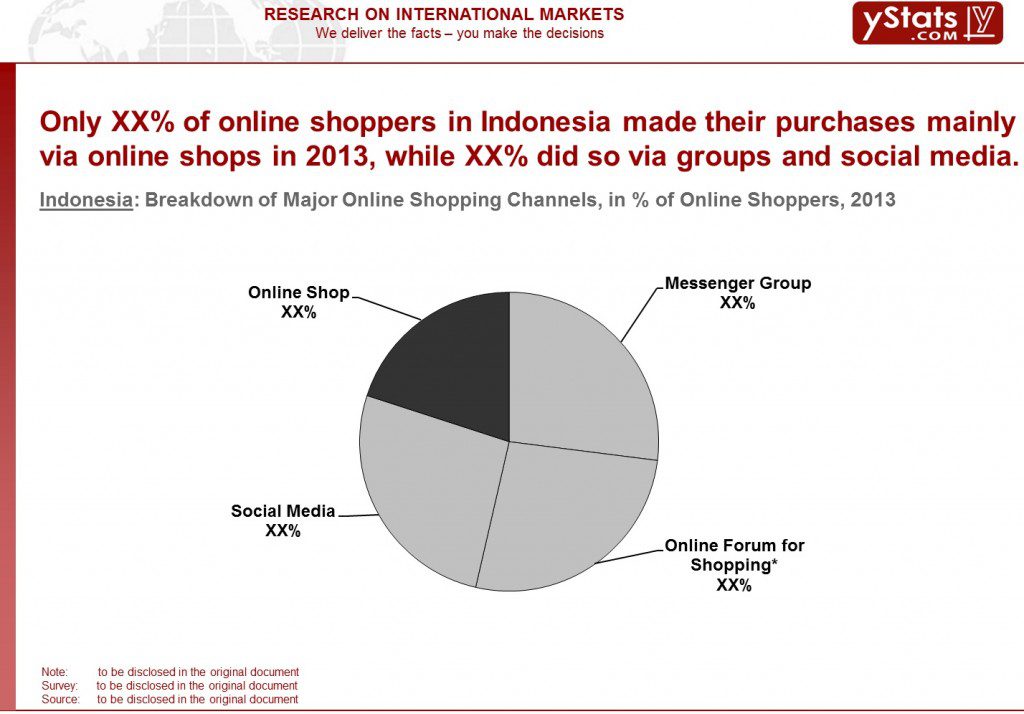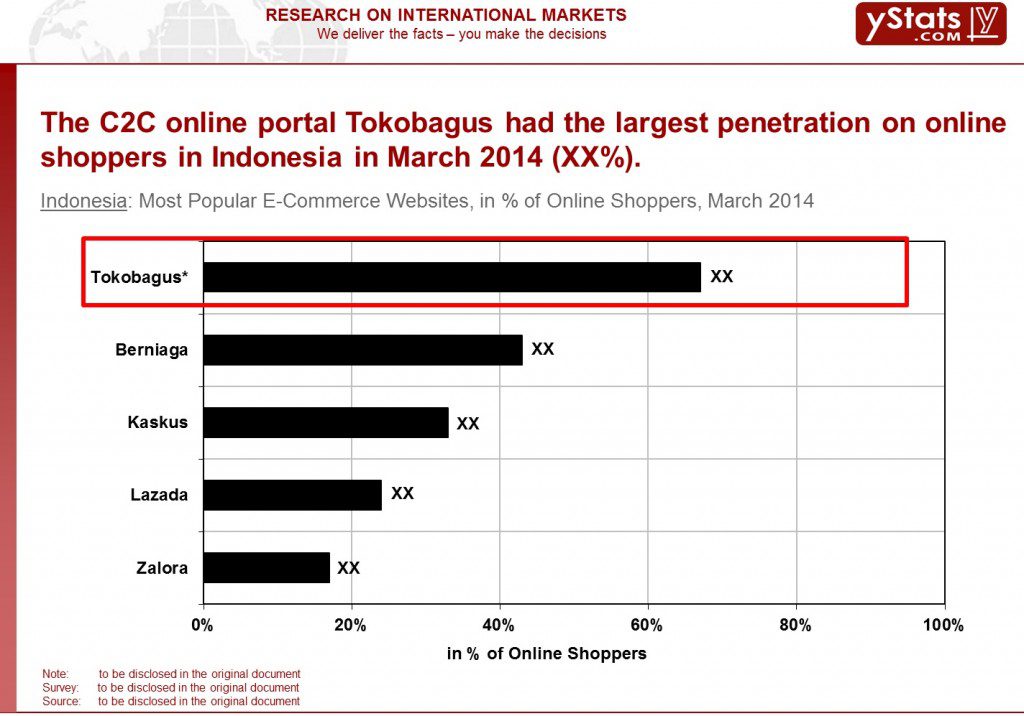A new publication by Hamburg-based secondary research organization yStats.com reports that the potential for B2C E-Commerce growth in Indonesia is among the highest in the world. With high double-digit annual growth rates, it is the second fastest growing B2C E-Commerce market worldwide. Consumer optimism there also ranks among the highest in the world. The main challenge to the implementation of the expected growth is the lack of infrastructure for E-Commerce in the country, especially with regard to logistics and payment.
The fourth most populous country in the world, Indonesia has had a relatively low penetration of Internet subscribers, below 30% in 2013. However, by 2016 the number of Internet users is projected to top 100 million, with online shopper penetration also increasing. One of the drivers of the growth is the anticipation of new E-Commerce legislation expected to be introduced in Indonesia in 2014 to replace the current unclear regulations for the industry. Among the considerations in the proposed legislative package are provisions to strengthen consumer rights, such as the obligation of merchants to provide full information about their services and their legal status.
Over half of Internet users in Indonesia access the web via mobile cellular devices, and a quarter of all adults in the country have a smartphone. The highest potential for mobile commerce in Indonesia comes from instant messaging and social networking apps, which are among the most popular activities carried out on Indonesian smartphones. Some popular messaging apps, such as Line and KakaoTalk already have the E-Commerce option integrated in their function. Shopping via mobile browsers and retail apps is also on the rise, with some merchants reporting as much as one third of total online sales coming from mobile users.

Social media is an important channel for online shopping in Indonesia, ranking above other factors that encourage consumers to shop online. Overall, consumers in Indonesia are among the most active worldwide in terms of social media usage. Not only do they review the products and communicate with merchants through social media, but also many shoppers regard the social media as a convenient direct shopping channel. Some startups in Indonesia make it their business to assist sellers in promoting their products through social media and aggregate their offerings in a single online shopping destination.

Given the recent growth and still untapped potential for online shopping, the competition landscape in Indonesia is very diverse, featuring models such as C2C forums and classifieds, C2C online marketplaces, B2C E-Commerce merchants and social network sellers. Across these models, the C2C online portal OLX (formerly Tokobagus) had the largest penetration on online shoppers in Indonesia in Q1 2014, followed by online classifieds website Berniaga, online forum and marketplace Kaskus and B2C online merchants Lazada and Zalora. Of the foreign E-Commerce websites, Amazon.com, eBay.com and Aliexpress.com are the most popular. Of the three, only eBay has local operations in the form of an online marketplace Blanja.com, a joint venture with Telko Indonesia.
Though online shopping is increasing across all product categories, apparel leads as the most purchased product category for both male and female consumers.


